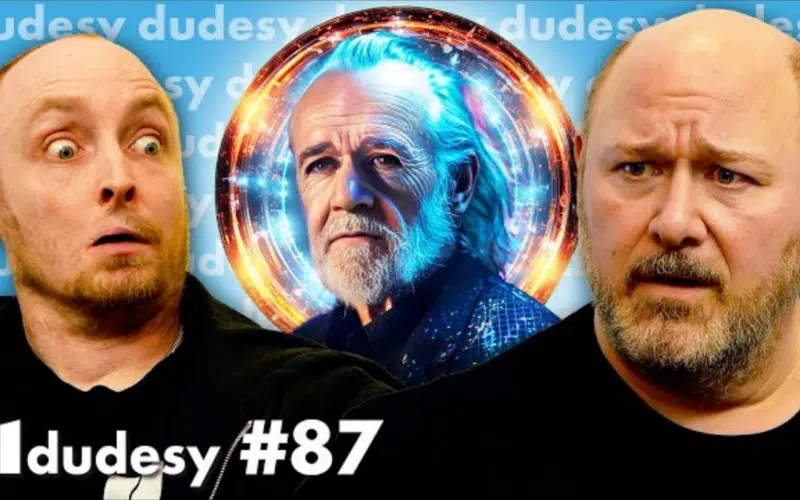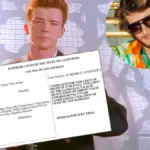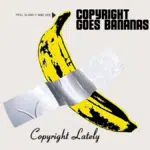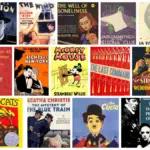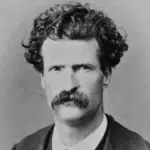While billed as a groundbreaking move in the battle over unauthorized digital replicas, the George Carlin estate’s new lawsuit faces tough challenges in court.
The late, great George Carlin once said, “I think it’s the duty of the comedian to find out where the line is drawn and cross it deliberately.” Subversive comedy was Carlin’s stock-in-trade, but a new lawsuit claims that an AI-generated Carlin impersonation is a bridge too far.
In case you missed it, earlier this year a couple of chuckleheads (former Mad TV cast member Will Sasso and his sidekick Chad Kultgen) released an hourlong comedy special called “George Carlin: I’m Glad I’m Dead,” which was posted on the YouTube channel for their podcast “Dudesy.” (The video has since been set to “private.”) The comedians initially claimed that the phony Carlin special—which features a vocal impersonation of George Carlin riffing about contemporary hot-button issues—had been created by training an AI algorithm on five decades’ worth of Carlin’s material.

Gullible journalists ate it up, with one Los Angeles Times writer proclaiming “The George Carlin auto-generated comedy special is everything that’s wrong with AI right now.” More tech-savvy media outlets like Ars Technica called BS on the claim that the comedy special was in fact generated by AI, speculating that the video was actually written by a human, using voice and image-generation tools “to essentially perform in ‘AI face’ as part of an ongoing comedy bit.” Technologist Cory Doctorow was even more blunt in a Medium article headlined, “I assure you, an AI didn’t write a terrible ‘George Carlin’ routine.”
Fake Comedy Special, Meet Real Lawsuit
George Carlin’s daughter Kelly and representatives of the Carlin estate weren’t amused. Late last week they filed a federal court copyright infringement and right of publicity lawsuit against Dudesy, LLC, along with Sasso and Kultgen personally (read the complaint here). The lawsuit claims that the defendants’ work is “output generated by a technological process that is an unlawful appropriation of Carlin’s identity, which also damages the value of Carlin’s real work and his legacy.” (The comedy special’s worst sin may be that it just isn’t very funny.)
Shortly after the complaint was filed, the defendants admitted to The New York Times what many had already suspected: “Dudesy” was nothing more than a fictional podcast character created by two human beings (Sasso and Kultgen). The fake Carlin special had, in fact, been completely written by humans and simply run through a voice converter. Still not amused, the plaintiffs have vowed that their lawsuit will move forward despite the out-of-court admission, with the plaintiffs’ lawyer commenting, “We don’t know what they’re saying to be true. What we will know is that they will be deposed. They will produce documents, and there will be evidence that shows one way or another how the show was created.”
For those looking forward to courtroom fireworks, I hate to be the bearer of bad news, but don’t take out your popcorn just yet. The phony George Carlin comedy special may be unauthorized, tasteless, and hacky. It may also be perfectly legal. Here’s why the plaintiffs’ complaint might not get very far in court.

Plaintiffs Don’t Allege Ownership Of Registered Copyrights
George Carlin’s most famous comedy routine is “Seven Words You Can Never Say on Television.” Here are seven words you should never say in a copyright infringement case: “I don’t have a copyright registration yet.” That’s because under section 411(a) of the Copyright Act, registration with the U.S. Copyright Office is a prerequisite to filing a complaint for copyright infringement.
The plaintiffs allege in their complaint that they have “properly applied to register” copyrights in George Carlin’s works, which suggests that they haven’t yet obtained registrations in the allegedly infringed works. In 2019, the U.S. Supreme Court expressly held that registration has been made “not when an application for registration is filed,” but only once “the Register has registered a copyright after examining a properly filed application.” Section 411(a) is essentially an administrative exhaustion requirement that a copyright owner needs to satisfy before attempting to enforce its ownership rights in court. By the plaintiffs’ own admission, this apparently hasn’t happened yet.
Plenty of cases in the Central District of California (the federal court in which plaintiffs have filed their lawsuit) have held that section 411(a)’s registration requirement applies even where a plaintiff attempts to amend its complaint after a work is later registered. Instead, courts faced with this situation typically dismiss the case outright, to be refiled once the requirements are satisfied.
Plaintiffs Haven’t Identified Their Copyrighted Works
Assuming the plaintiffs obtain copyright registrations, they’re also going to need to do a better job of identifying the particular works in which they claim an ownership interest. As it currently stands, the complaint is totally silent as to what copyrighted material the plaintiffs claim to own and what they claim has been infringed. The conclusory allegation that “Plaintiffs own and represent all of the intellectual property rights of the late George Carlin” likely won’t cut it.
As an aside, to the extent Carlin’s recorded comedy monologues were used to train an AI voice converter, it’s not clear that the plaintiffs would in fact own “all” of those materials, as opposed to, say, the record labels that released his comedy albums, or the owner of the copyrights in the numerous Tonight Show episodes in which Carlin’s performances are embodied. But without knowing exactly what the plaintiffs’ copyright registrations actually cover, we don’t yet know whether they will be able to eventually state a valid infringement claim.
What About the Right of Publicity Claims?
In addition to their copyright infringement claims, the plaintiffs also assert claims based on the defendants’ alleged violation of California’s right of publicity law, both at common law and under California Civil Code section 3344.1. These claims also face a number of hurdles.
Defendants Didn’t Use Carlin’s “Voice”
California Civil Code section 3344.1 provides a remedy against “[a]ny person who uses a deceased personality’s name, voice, signature, photograph, or likeness, in any manner, on or in products, merchandise, or goods, or for purposes of advertising or selling, or soliciting purchases of, products, merchandise, goods, or services, without prior consent.” This law protects against vocal appropriation, as does a statute with nearly identical language, section 3344, which applies to living individuals.
But as I explained last year in discussing Rick Astley’s soundalike lawsuit against Yung Gravy, the Ninth Circuit has rejected an interpretation of the word “voice” in the statute that would extend to vocal imitations. In its 1988 opinion in Midler v. Ford Motor Co., the court rejected Bette Midler’s section 3344 claim in connection with a Ford television commercial in which a Midler soundalike sang a song that Midler had made famous. The Ninth Circuit held that Midler couldn’t state a statutory claim because the “voice” used in the commercial wasn’t actually hers. The court also held that the term “likeness” in the statute “refers to a visual image not a vocal imitation.”
The “Name and Likeness” Claims Will Face Hurdles Too
While Carlin’s estate won’t be able to rely on California’s right of publicity statute with respect to the defendants’ vocal imitation, the plaintiffs do also allege that Carlin’s “name” and “likeness” were appropriated as well.

While these claims would probably survive a motion to dismiss, they are still likely to face significant hurdles down the line. That’s because the right of publicity statute for deceased celebrities contains an express exemption that applies to “a play, book, magazine, newspaper, musical composition, audiovisual work, radio or television program, single and original work of art, work of political or newsworthy value, or an advertisement or commercial announcement for any of these works.” This exemption, along with the First Amendment, is what protects filmmakers who create unauthorized celebrity biopics.
The fake comedy special itself would arguably fall within the exemption afforded to “audiovisual works,” as would advertisements for the special. There is an exception to the exemption that may apply if the plaintiffs can demonstrate that the special was used to promote separate products and services, such as Dudesy merchandise. But the exception requires that the use of the deceased individual’s name and likeness be so “directly connected to a product, article of merchandise, good, or service” that it essentially constitutes an advertisement for that good or service. Think infomercials, not the regular commercials or promotional bumpers that typically run alongside expressive works.
California’s Common Law Right of Publicity Doesn’t Apply to Deceased Celebrities
While Midler ruled that the use of a soundalike didn’t technically fit under the statutory right of publicity, that court nevertheless allowed the plaintiff to pursue a right of publicity claim under California common law. The common law right of publicity complements the state statute and, more broadly, protects against the misappropriation of a person’s “identity,” including through the use of a vocal imitation in a commercial advertisement.
But the common law right of publicity is of no use to the George Carlin estate here. That’s because it doesn’t apply to deceased persons. As there’s no dispute that Carlin passed away in 2008, his estate simply can’t state a valid common law right of publicity claim.
The Bottom Line
Don’t get me wrong: I certainly empathize with Kelly Carlin’s frustration over what she calls a “poorly executed facsimile cobbled together by unscrupulous individuals to capitalize on the extraordinary goodwill my father established with his adoring fanbase.” But this lawsuit, for better or worse, highlights the fact that current law may not be fully equipped to deal with the eventual explosion of AI-generated content.
As for whether existing copyright or right of publicity laws should be amended to more explicitly cover unauthorized digital depictions and voice replicas, I’ll leave that for another day. I will say that the answers aren’t as clear-cut as they may first appear. While various proposed “no fakes” laws currently being discussed in Congress and in state legislatures may be well-intentioned, it’s important to ensure that they don’t improperly impinge on First Amendment-protected artistic expression or create incentives to commercialize deceased performers in a way that could actually lead to an even greater proliferation of phony digital replicas.
For now, I suppose we can take solace in the fact that AI isn’t yet able to create a fully formed comedy special able to elicit laughs that aren’t directed at how bad it is. The bottom line is that lawsuit or no lawsuit, nobody’s replacing George Carlin.
Of course, that’s just what I think. Let me know what you think in the comments below or @copyrightlately on social media. In the meantime, here’s a copy of the full (human-drafted) complaint.
